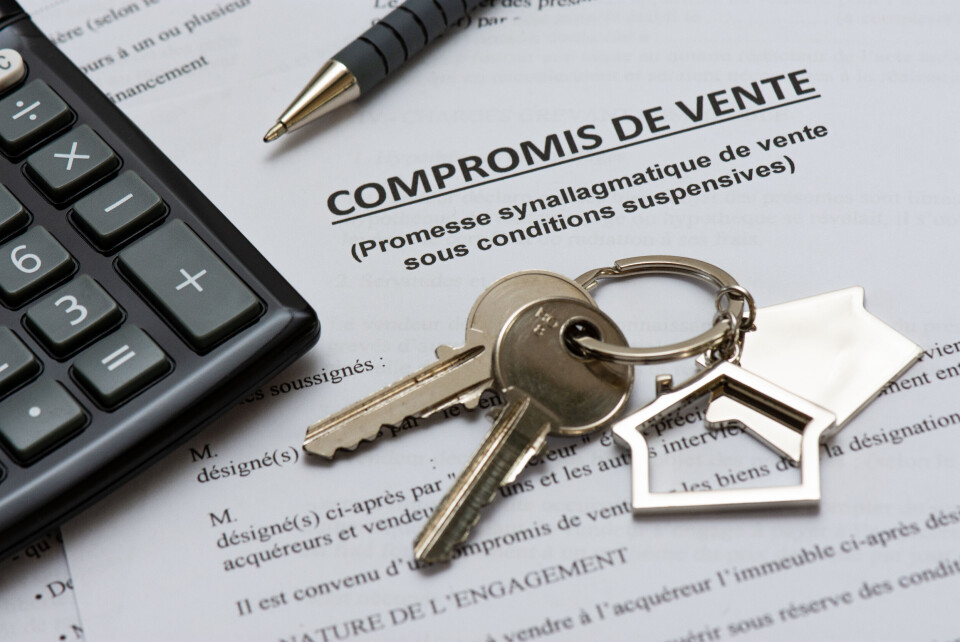-
Will new EU border security rules affect double passport holders?
We look at rules if you have two countries’ passports or two from the same country
-
How are insurance details provided following road accidents in France?
Green insurance stickers were rarely used following accidents
-
Customs: What allowances are there to take household items from France to UK?
Personal goods allowances change depending on how you arrive in the country
How is property tax shared out for sale of French second home?
We look at what happens with the taxe foncière and taxe d’habitation and whether refunds are possible

Reader question: I have agreed to sell our property in France. Does the notaire pay the foncière and habitation taxes after the transaction is complete? Regarding taxe d’habitation, I paid a considerable amount last time despite being over 70. I was under the impression it was supposed to end at a certain age? M.E.
Taxe d’habitation continues to apply on all properties owned as a second home. For main homes, it is being phased out in two stages.
The first is over and was for incomes under €27,761 for a single person and €44,211 for a couple. For those with incomes over these amounts, annulment started in 2021 with a 30% reduction, then a 65% reduction in 2022 and with nothing to pay from 2023.
Other reductions or exemptions, including one for over 60s, also apply only to main homes and only if declared income is below certain modest means thresholds.
Read more:Taxe foncière property tax in France: What exemptions exist?
With regard to refunds in the year of sale, it is not customary for taxe d’habitation to be refunded to the seller since it is based on the person or people using the property on January 1 of the year in question.
There is also a general principle that one should only pay the tax once, so if the buyer has already paid on his or her previous home, they should not be expected to pay a second time.
Another issue is that the household income appears on the tax assessment for this tax and vendors usually prefer not to divulge this.
Otherwise, if you are not worried about this, you are free to request an agreement to a refund of the taxe d’habitation on the basis of the last amount paid.
Taxe foncière is also levied on January 1, but on the owner of the property. As this ownership changes on a sale, it is generally the only tax to be partly shared out between the two owners in the same tax year.
It is typically refunded on a pro-rata basis of the year the property is owned by you and the new vendor, again on the basis of the last available assessment.
The notaire will therefore ask for the copy of the last assessment for the taxe foncière.
The notaire does the calculation of the pro-rata amount paid by you or due to be paid by you (dependant on whether the sale occurs before or after you have received the assessment) and so that part that is due back to you.
Read more: French property: Buyers paying estate agent fees could save cash
The tax refund is added to the sale price and paid to you by the notaire, who obtains the funds from the buyer.
A copy of the acte de vente is then sent to the tax office with the stamp duty paid by the buyer, and the tax office arranges for the change in who to bill for the property taxes.
If the property sale occurs late in the calendar year, the tax office might not have had time to change the details for the assessment to be issued after the sale, and so you might ‘incorrectly’ receive another assessment.
If this happens, return it to the tax office, crossing out your name, and adding the words vendu, the date of the sale, and the new owner’s name.
Find help with navigating life in France with our new Reader Questions newsletter
Sign up for our pick of the week's questions from readers answered by the Connexion team – delivered to your inbox every Saturday.
See what other readers like you are asking including: How often is a rabies shot for dogs required for France-UK travel? Can foreign residents benefit from France's pension top-up benefit? and more.
Sign up for the free newsletter
Related articles
Couple find solution to French second home tax retention on house sale
House buyers in France warned over notaire money transfer scam
Buying and selling a home in France: What is the viager system?
























